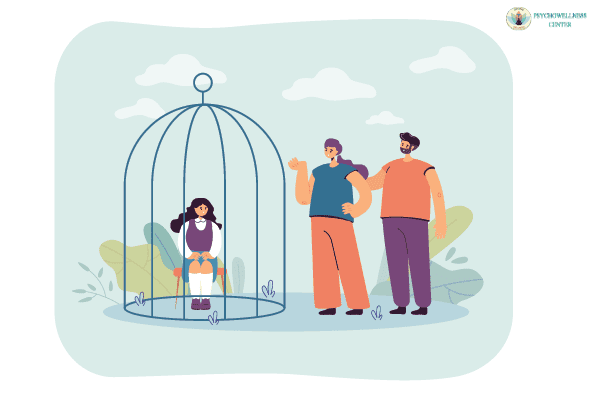Social withdrawal in children is a concern that can have significant implications for their development and well-being. When children withdraw from social interactions, it can impact their emotional health, academic performance, and ability to form meaningful Relationships. Understanding the reasons behind social withdrawal and implementing effective strategies can help parents support their children in overcoming these challenges. This blog will explore the causes of social withdrawal, and its effects, and provide practical strategies for managing and mitigating social withdrawal in children.
Understanding Social Withdrawal
Social withdrawal refers to a consistent tendency to avoid social interactions and activities that involve other people. This behavior can manifest in various ways, such as avoiding group activities, preferring solitary play, or showing reluctance to engage in conversations. While some degree of solitude is normal and can be healthy, persistent social withdrawal can be a sign of underlying issues that need to be addressed.
Causes of Social Withdrawal
1. Anxiety and Fear
Children may withdraw from social situations due to anxiety or fear. This could be related to specific social settings (social anxiety disorder), fear of being judged or embarrassed, or a general feeling of unease around others.
2. Low Self-Esteem
Low self-esteem can lead children to withdraw from social interactions. They may feel inadequate or fear rejection, leading them to avoid situations where they might feel vulnerable.
3. Depression
Depression can cause significant social withdrawal. Children who are depressed may lose interest in activities they once enjoyed and isolate themselves from friends and family.
4. Bullying and Peer Rejection
Experiences of bullying or peer rejection can lead to social withdrawal. Children who feel unsafe or unwelcome in social settings may choose to isolate themselves to avoid further harm.
5. Autism Spectrum Disorder (ASD)
Children with Autism Spectrum Disorder often have difficulties with social interactions and may exhibit social withdrawal as a result. They might struggle to understand social cues and prefer solitary activities.
6. Family Issues
Family dynamics, such as parental conflict or lack of emotional support, can also contribute to a child’s social withdrawal. A stressful home environment can make it difficult for children to feel secure and confident in social situations.
Effects of Social Withdrawal
1. Emotional Impact
Social withdrawal can lead to feelings of loneliness, sadness, and increased Anxiety. Over time, these feelings can exacerbate the problem and create a cycle of withdrawal and emotional distress.
2. Academic Challenges
Children who withdraw socially may also struggle academically. They might have difficulty participating in group activities, engaging with teachers, or asking for help, which can negatively impact their learning experience.
3. Social Skills Deficit
Lack of social interaction can impede the development of essential social skills, such as communication, cooperation, and conflict resolution. Social skills are necessary for developing and maintaining healthy relationships.
4. Long-term Consequences
Persistent social withdrawal can have long-term consequences, including ongoing mental health issues, difficulty forming relationships in adulthood, and challenges in professional settings.
Strategies for Managing Social Withdrawal
1. Encourage Gradual Exposure
a. Start Small
Encourage your child to engage in social interactions gradually. Start with small, manageable steps, such as inviting one friend over for a playdate or participating in a short group activity.
b. Celebrate Progress
Acknowledge and celebrate your child’s efforts and progress, no matter how small. Positive reinforcement can boost their confidence and motivation to continue engaging socially.
2. Foster a Supportive Environment
a. Safe Space
Create a safe and supportive home environment where your child feels comfortable expressing their feelings and fears. Open communication and emotional support are key to helping them feel secure.
b. Family Activities
Engage in family activities that promote social interaction, such as game nights, outdoor adventures, or family dinners. These activities provide opportunities for social practice in a safe setting.
3. Develop Social Skills
a. Role-Playing
Use role-playing exercises to teach and practice social skills. Role-playing different social scenarios can help your child understand how to navigate various situations and build confidence.
b. Social Skills Groups
Engage your child in social skills groups or classes. These groups provide a structured environment for children to learn and practice social skills with peers.
4. Address Underlying Issues
a. Professional Support
If your child’s social withdrawal is linked to anxiety, depression, or other mental health issues, seek professional support from the Top psychologists in delhi. Therapists and counselors can provide strategies and interventions to address these underlying problems through Teen Therapy and kid Therapy.
b. School Support
Work with your child’s school to address any academic or social challenges they may be facing. Teachers and school counselors can provide additional support and resources.
5. Encourage Interests and Hobbies
a. Explore Interests
Encourage your child to explore hobbies and interests that can involve social interaction. Whether it’s joining a sports team, participating in a club, or taking up a new hobby, these activities can provide natural opportunities for social engagement.
b. Shared Activities
Find some activities that you and your child enjoy. Shared interests can strengthen your bond and create opportunities for social interaction in a comfortable setting.
6. Model Positive Social Behavior
a. Lead by Example
Children learn by observing their parents. Model positive social behavior by engaging in social activities, demonstrating empathy, and showing how to handle social interactions gracefully.
b. Positive Reinforcement
Use positive reinforcement to encourage social behavior. Praise your child when they make an effort to engage socially and provide specific feedback on what they did well.
7. Build Self-Esteem
a. Strengths and Achievements
Help your child recognize their strengths and achievements. Focusing on their positive qualities can boost their self-esteem and reduce feelings of inadequacy.
b. Encourage Independence
Encourage your child to take on responsibilities and make decisions by themselves. This can help them feel more confident.
8. Reduce Stress and Anxiety
a. Relaxation Techniques
Teach your child relaxation techniques, such as deep breathing, mindfulness, or yoga. These techniques can

